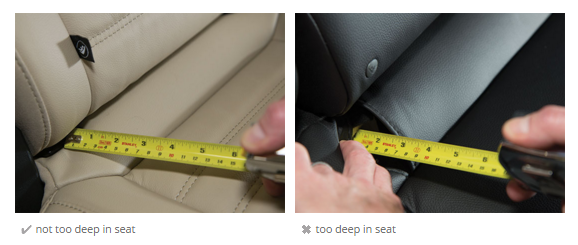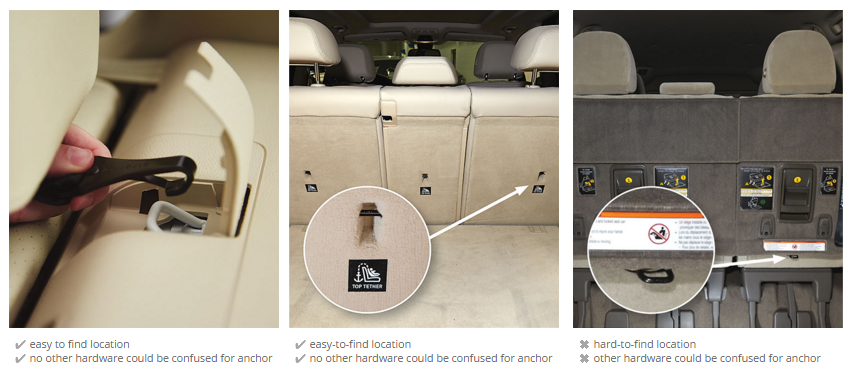Daily, moms and dads across the country place their most precious cargo into a child safety seat and hit the road, all of them believing their children are safe and secure. With mandatory laws requiring that children be placed in car seats, two systems (seat and car) come into play and interact with one another. This interaction of a child safety seat with a vehicle is another example of how system safety can be used to recognize hazards and eliminate said hazards through design.
Over the years, there has been literature regarding parents’ alleged misuse of car seats relative to installation anchoring. Misuse is the incorrect term though. Parents use their best efforts to anchor car seats given the two systems they are utilizing. Designers of the systems (both car seat designers and car designers) should undertake studies well in advance of marketing to understand how parents will use both systems in conjunction.
In 2015 the Insurance Institute for Highway Safety published a study regarding LATCH (Lower Anchors and Tethers for Children). The study found that latch hardware could be better designed for correct installation. The study recognized that parents often struggled to locate the anchors in vehicles or find it difficult to attach the car seat to the vehicle.
Lower anchors should be no more than ¾ inch deep in the seat bight (area where the seat back and base come together).

The left picture shows a depth of less than ¾ inch. The right picture shows a depth of greater than ¾ inch.
Upper anchor points should also be easy to find, clearly labeled, and not confused with such things as cargo hooks that could be mistaken for anchor points.

The two left images show vehicles with easy to find anchors without other hardware nearby that could be confused as anchors. The right image shows tethering anchors that are hard to find. They are hidden among other hardware that could easily be confused as anchors.
Securely anchoring child seats should not be a struggle for parents. Coordinating designs of child seats relative to vehicles is an example of how design induced error can occur when system safety is not used.

